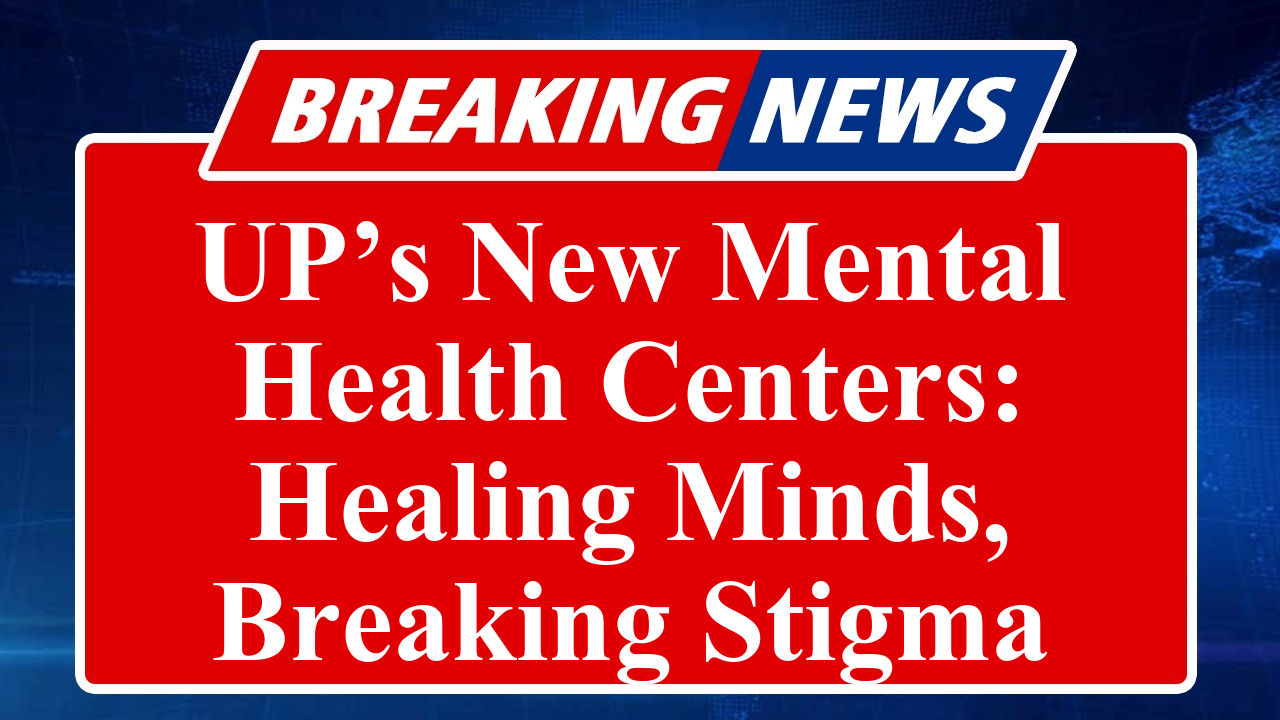UP’s new counseling centers under the Mental Health Mission aim to bridge the mental health treatment gap, offering accessible care in rural and urban areas. Backed by the National Mental Health Programme, these centers provide free counseling, tele-consultations, and awareness campaigns to combat stigma and enhance community well-being.
Uttar Pradesh Strengthens Mental Health Infrastructure
In a significant step towards addressing the growing mental health crisis, Uttar Pradesh has launched a series of new counseling centers under its Mental Health Mission, aligning with the National Mental Health Programme (NMHP) initiated by the Government of India in 1982. These centers, rolled out across various districts, aim to make mental health services accessible to both rural and urban populations, tackling the substantial treatment gap highlighted by the National Mental Health Survey (NMHS) of 2016, which reported that 10.6% of adults over 18 in India suffer from mental disorders, with an 83.4% treatment gap.
The new centers are designed to provide a range of services, including free counseling, psychosocial interventions, and tele-consultation services, building on the framework of the District Mental Health Programme (DMHP). As of February 2025, the Tele MANAS initiative, a key component of the NMHP, has handled over 1.81 million calls nationwide, with Uttar Pradesh actively contributing through its 53 Tele MANAS Cells. These cells offer 24/7 mental health support, immediate tele-counseling by trained professionals, and referrals to psychiatrists for severe cases, ensuring a robust network for mental health care delivery.
Uttar Pradesh’s initiative includes comprehensive counseling centers in districts, serving as one-point contact hubs for psychological counseling and social welfare linkages. These centers are equipped to handle diverse mental health concerns, from anxiety and depression to severe disorders, with a focus on early detection and intervention. The state has also integrated mental health services into primary health centers (PHCs) and Ayushman Arogya Mandirs, ensuring that even remote areas have access to basic counseling and psychiatric medication. Training programs for general physicians and community health workers, conducted in collaboration with platforms like iGOT-Diksha, are enhancing grassroots capacity to address mild-to-moderate mental health conditions.
A key focus of the mission is reducing stigma, a major barrier to seeking mental health care in India. The centers are conducting awareness campaigns through digital platforms and community outreach, targeting schools, colleges, and workplaces to promote mental health literacy. For instance, programs inspired by the Bellary Model from Karnataka emphasize early detection, treatment, and community participation. The initiative also prioritizes vulnerable groups, such as students and women, with specific programs like life skills training and maternal mental health services.
Despite these efforts, challenges remain. The NMHS revealed that only 0.75 psychiatrists are available per 100,000 people in India, far below the recommended three. In Uttar Pradesh, the shortage of mental health professionals and limited availability of psychotropic medications at PHCs pose hurdles. Additionally, societal stigma and low awareness continue to deter individuals from seeking help, particularly in rural areas. The state is addressing these issues by empowering individuals with lived mental health experiences to participate in service planning, ensuring a more inclusive approach.
The Mental Healthcare Act (MHA) of 2017, which decriminalized suicide attempts and emphasized community-based care, underpins these efforts. However, the implementation of Mental Health Review Boards (MHRBs) in Uttar Pradesh, as in other states, remains inconsistent, limiting the enforcement of patients’ rights. The state is working to strengthen these boards to ensure better oversight and coordination of mental health services.
Uttar Pradesh’s Mental Health Mission also draws inspiration from successful community-based models like Sangath in Goa, which trains lay counselors to deliver low-cost interventions, and Banyan in Chennai, known for its person-centered care for homeless individuals with mental health issues. By integrating such models, the state aims to create a sustainable mental health ecosystem that prioritizes accessibility, affordability, and cultural sensitivity.
The launch of the Tele MANAS App in October 2024 has further bolstered UP’s efforts, offering self-care strategies, stress management tools, and direct access to professionals. This digital push aligns with the Ayushman Bharat Digital Mission, ensuring continuity of care through digitized health records. With a projected growth of the Indian mental health market at a CAGR of 28.16% from 2024 to 2032, Uttar Pradesh’s initiatives are poised to contribute significantly to this transformation, making mental health care a cornerstone of public health.
Disclaimer: This news article is based on publicly available information from government websites, reports, and recent mental health initiatives in India. The data reflects real-time updates as of August 2025, sourced from credible platforms like the Ministry of Health and Family Welfare, NIMHANS, and industry analyses. Readers are advised to verify details with official sources for the latest updates.

